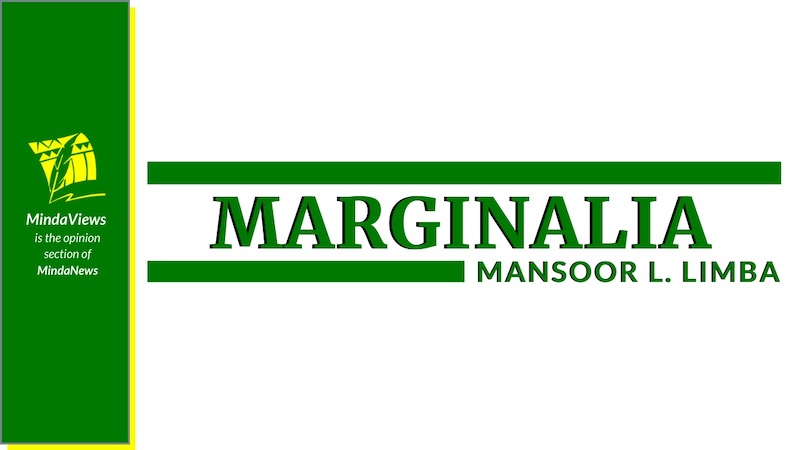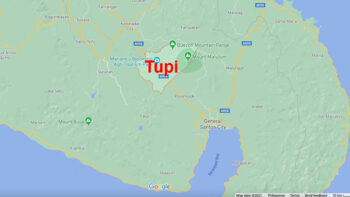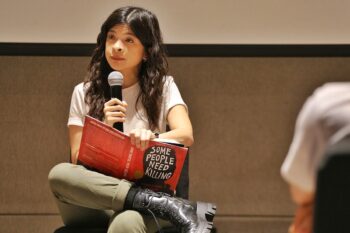
MAKATI CITY (MindaNews / 16 February) – As its official website reveals, A.D. Scientific Index is “a ranking and analysis system based on the scientific performance and the added value of the scientific productivity of individual scientists. Furthermore, it provides rankings of institutions based on the scientific characteristics of affiliated scientists.” (About Us and Methodology)
Developed by Prof. Dr. Murat Alper (MD) and Associate Prof. Dr. Cihan Döğer (MD) and using a total of nine parameters and showing the ranking of an individual scientist by 112 subjects, 256 branches, 14,153 institutions, 215 countries, 10 regions, and in the world, this new index claims to be “the first and only study that shows the total and the last five-year productivity coefficients of scientists based on the h-index and i10 index scores and citations in Google Scholar.” (Ibid.)
Notwithstanding the high claims and technical nuances of the Index, certain points can be observed: (1) Inclusion via Google Scholar or voluntary application, (2) Limitation of Google Scholar radar, (3) Impact factor measured on the number of citations (horizontal impact), and (4) Horizontal impact not equal to vertical impact.
- Inclusion via Google Scholar or voluntary application
The inclusion in the A.D. Scientific Index is based upon a person’s Google Scholar profile.
With an index that includes most peer-reviewed online academic journals and books, conference papers, theses and dissertations, preprints, abstracts, technical reports, and other scholarly literature, including court opinions and patents, Google Scholar is a freely accessible web search engine that indexes the full text or metadata of scholarly literature across an array of publishing formats and disciplines. (Google Scholar)
AD Scientific Index also added that “It is the liability of the scientist to ensure the accuracy and the ethical aspects of the profile.” (Add Profile – Edit Profile)
Apart from having a Google Scholar profile, inclusion in the Index is also made possible by submitting your profile with a “data processing fee” of US$24, or US$30 (25 Euro or 22 British Pounds) if you are from a high-income economy country ($12,736 or more) based on the World Bank Classification. (Ibid.)
Having said this, how about if an academician does not have a Google Scholar profile, or is not willing to pay for the “data processing fee” (US$24 or 30), for whatever reason or reasons?
Obviously, her profile can never be found in the AD Scientific Index.
- Limitation of Google Scholar radar
Now, even if an academician has a Google Scholar profile and in spite of Google Scholar’s use of a web crawler, or web robot, to identify files for inclusion in the search results, it is still criticized for its limitations ranging from non-vetting of journals and inclusion of predatory journals in its index, to putting high weight on citation counts in its ranking algorithm and thereby strengthening the Matthew effect and its vulnerability to spam, to non-maintenance of an Application Programming Interface that may be used to automate data retrieval and non-display or non-exportation of Digital Object Identifiers (DOIs), a de facto standard implemented by all major academic publishers to uniquely identify and refer to individual pieces of academic work. (Google Scholar)
Sometimes summarized by the adage “The rich get richer, and the poor get poorer,” the Matthew effect of accumulated advantage, Matthew principle, or Matthew effect for short, is the concept which is applicable to matters of fame or status and describes the inequality in the way scientists were recognized for their works. (Matthew effect) Accordingly, highly cited papers that appear in top positions are more likely to gain more citations while new papers hardly appear in top positions and therefore get less attention by the users of Google Scholar and hence fewer citations.
As a personal experience on these perceived limitations, it can be observed that approximately 90% of the over 60 books I have translated or written, let alone the book chapters and articles here and there, are NOT within the Google Scholar “radar.” And I have not seen in my Google Scholar profile any of the almost 30 book titles that can be found in my Amazon.com Author Page.
Google Scholar is not alone though in this oversight.
Your own university may also lose sight of your published work.
For instance, the university to which I’m affiliated posted “Published Faculty Members for School Year 2021-2022) First Semester” in an exclusive online platform for the university community members on November 8, 2021. Under the category “Faculty Members who published a book,” a chapter of the book “The Challenges of Reporting Violent Extremism: Lessons from Mindanao” (MindaNews.com, 2021) contributed by a senior faculty member is included while my contribution, “Is ‘Terror’ Marawi’s Single Story?” in the same book is NOT. (My pertinent email dated Feb 3, 2022, to the Communications and Promotions Team elicited neither a reply nor correction in the post.)
- Impact factor measured on the number of citations (horizontal impact)
As obvious from the outset, the impact factor considered in the Index is measured by the number of citations in other studies or research works. This is what we may call “horizontal impact” or the impact within the academia or the scientific community.
In view of this, we can say that the Index misses something as this instructive anecdote of a two-deck ship will illustrate:
The people occupying the upper deck are so pleased enjoying the benefits of some passengers’ productivity there. One passenger has been able to compose a poem describing the ocean’s beauty and the adventure of seafaring. Another person has been able to come up with his signature wine. Yet another person has succeeded in formulating a massage technique that is proven to be very effective in treating seasickness.
While passengers of the upper deck do benefit from such productivity of co-passengers, those passengers in the lower deck do not enjoy the same in whatever shape or form.
- Horizontal impact not equal to vertical impact
The anecdote is actually a parable of the real world. The upper deck represents the ivory tower of the academe while the lower deck represents the common people below the tower.
Research works cited by other research works DO NOT necessarily mean that the former or the latter do really make any impact down the grassroots level. It is possible that only the upper deck benefits while the lower deck does NOT.
If we go back to the archetypal cycle mentioned in Part 1 of this column, it means that research and publication are not necessarily equal to community engagement. Expressed differently, knowledge-production is not automatically identical with knowledge-utilization.
Simply put, to be CITED does not necessarily mean to be able to INCITE.
To be cited AND to incite at the same time, however, is the most ideal.
Such was the feat of Malala, the youngest Nobel Prize laureate at 17, for risking her life in pursuit of her advocacy for female education. (I AM MALALA: HOW ONE GIRL STOOD UP FOR EDUCATION AND CHANGED THE WORLD by Malala Yousafzai)
Such was the feat of Sheryl Sandberg, the first woman elected to Facebook’s board of directors, for advocating women’s leadership roles in the workplace. (LEAN IN: WOMEN, WORK, AND THE WILL TO LEAD by Sherly Sandberg)
Such was the feat of Pooja Sankar, the founder and CEO of Piazza, a question-and-answer platform for students and teachers for online collaborations.
To be cited. To inspire. To be aspired. And to incite.
It is only then that we can complete the archetypical cycle that begins with knowledge-rationalization and ends in knowledge-utilization, and back again, again, and again.
[MindaViews is the opinion section of MindaNews. Mansoor L. Limba, PhD in International Relations, is a writer, university professor, blogger, chess trainer, and translator (from Persian into English and Filipino) with tens of written and translation works to his credit on such subjects as international politics, history, political philosophy, intra-faith and interfaith relations, cultural heritage, Islamic finance, jurisprudence (fiqh), theology (‘ilm al-kalam), Qur’anic sciences and exegesis (tafsir), hadith, ethics, and mysticism. He can be reached at mlimba@diplomats.com, or http://www.mlimba.com and http://www.muslimandmoney.com, and his books can be purchased at www.elzistyle.com and www.amazon.com/author/mansoorlimba.]







